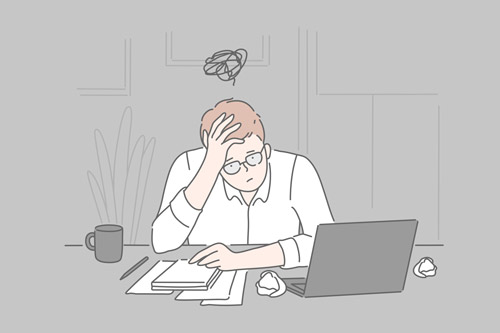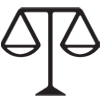
From hospitals being hacked to major tech companies being blackmailed with ransomware, nowadays no organization is truly safe from cybercrime. Especially since the COVID-19 pandemic hit, hacking has become an increasing occurrence as cybercriminals take advantage of the situation.
Adapting to the new challenges of keeping your company and your customers’ privacy safe from major threats is a task that virtually all companies large and small alike face everywhere.
Modern problems require modern solutions. In this article, we’ll give you a rundown on what you can do to protect your own and your customer data from being leaked, hacked, or spied on. You would be surprised by how many options are relatively cheap and straightforward, but just not common knowledge with ordinary people.
How do customers feel about their personal data being at risk?
Cyberattacks are not a rare phenomenon, and it should be no surprise they are rising in number, especially since the pandemic hit. Cybercriminals have been quick to take advantage of the chaos created by the coronavirus, which puts a lot of pressure on companies to safeguard consumer personal data.
Recent studies show that the average American is very well aware and worried about what may happen to their data, with more than 80% of Americans feeling like they have little control over what data companies and the government collect. Two thirds also believe that the risks outweigh the benefits of data collected by the government, and four out of five believe this is also true for companies.
Even more concerning is how 70% of Americans admit to a lack of knowledge of how precisely their private information gets used. It just goes to show how from private internet users to entire organizations, cybersecurity is growing more potent than ever with solutions for problems that most people are only vaguely aware of. As a result, since most people are unaware of how to truly secure their personal data, as an online business owner much of this responsibility falls upon you.

How companies can safeguard customer personal data
Fortunately, there are plenty of options for any business to keep information entrusted to them safe. If you have not taken any steps yet, take some of the following surprisingly easy options into consideration:
Secure online payment methods with PCI compliance
A still relatively recent adaptation to the digitization of payments is the use of instant payment services that come with PCI DSS, or Payment Card Industry Security Standards. This ensures the security of customer card data through a set of security practices, including anti-virus software, firewall installation, and encrypting all personal data transmissions.
PCI DSS also enables you to become more responsive to your customers’ needs, allowing you to collect bills and expenses immediately without having to wait for weeks and sometimes months for a client to pay.
Only keep the personal data you need
How long should your company keep consumer personal data? This is a simple question, and yet also an essential one. Most customers and clients logging into websites have to consent to their information being collected or saved by agreeing to a privacy policy. Most such privacy policies give companies lots of room in regards to the information that they can collect.
However, the more data you collect, the more complicated it becomes to protect it. This is why you should only keep the most imperative data that you absolutely need, and also only for a limited amount of time if possible. The less information you have to hide behind firewalls and other safety measures, the more time and money you have to spare for other important steps for you and your business.
Rely on SaaS for your storage and hosting needs
Another effective way to boost security is to rely on the cloud for your hosting and data storage purposes. Generally speaking, storing customer personal data on the cloud is more secure than on-premise solutions because there is less risk of human interference and also because most public cloud service providers have invested heavily in multi-layered security measures.
SaaS cloud-based systems specifically provide higher security due to them hosting the client’s software on their servers. It then gets distributed to verified end users online with a surprisingly easy set-up. The chain of potential security leaks is, therefore, smaller in this type of system, and leaks are more likely to be fixed before causing severe issues.
Invest in employee cybersecurity training
Not only must your software be reliable and secure, but your personnel must be as well. This is why it is vitally important to invest the time and resources into training your employees about basic cybersecurity measures.
Specifically, teach your employees about how to recognize phishing and social engineering attacks, password security measures, setting up two-factor authentication, and encrypting their networks while working, which is especially important while working from home. Speaking of which…
Utilize VPNs to encrypt your network and your customer’s personal data
A straightforward yet often overlooked security approach lies in the use of a virtual private network (VPN) to encrypt company and customer personal data. A virtual private network creates a safe passage for your data while browsing through concealing your IP address. Emails, shared documents, and simple google searches will all be covered and camouflaged.
If every company member uses a VPN while working, all data sent from colleague-to-colleague or employee-to-customer is almost impossible to access or trace by outside forces. Make it a company policy that all employees must utilize a VPN both when working from home or in the office.
Conclusion: customers care about their personal data and you should too
Utilizing the above security strategies is more critical than ever, and each of these steps to increase your and your client’s perosnal data safety is also surprisingly practical. The above measures can really make all the difference to shield against the majority of online criminality.

Sam Bocetta
Sam Bocetta is a freelance journalist specializing in U.S. diplomacy and national security, with emphases on technology trends in cyberwarfare, cyberdefense, and cryptography.

Your cornerstone to an effective domain name and brand management strategy.









